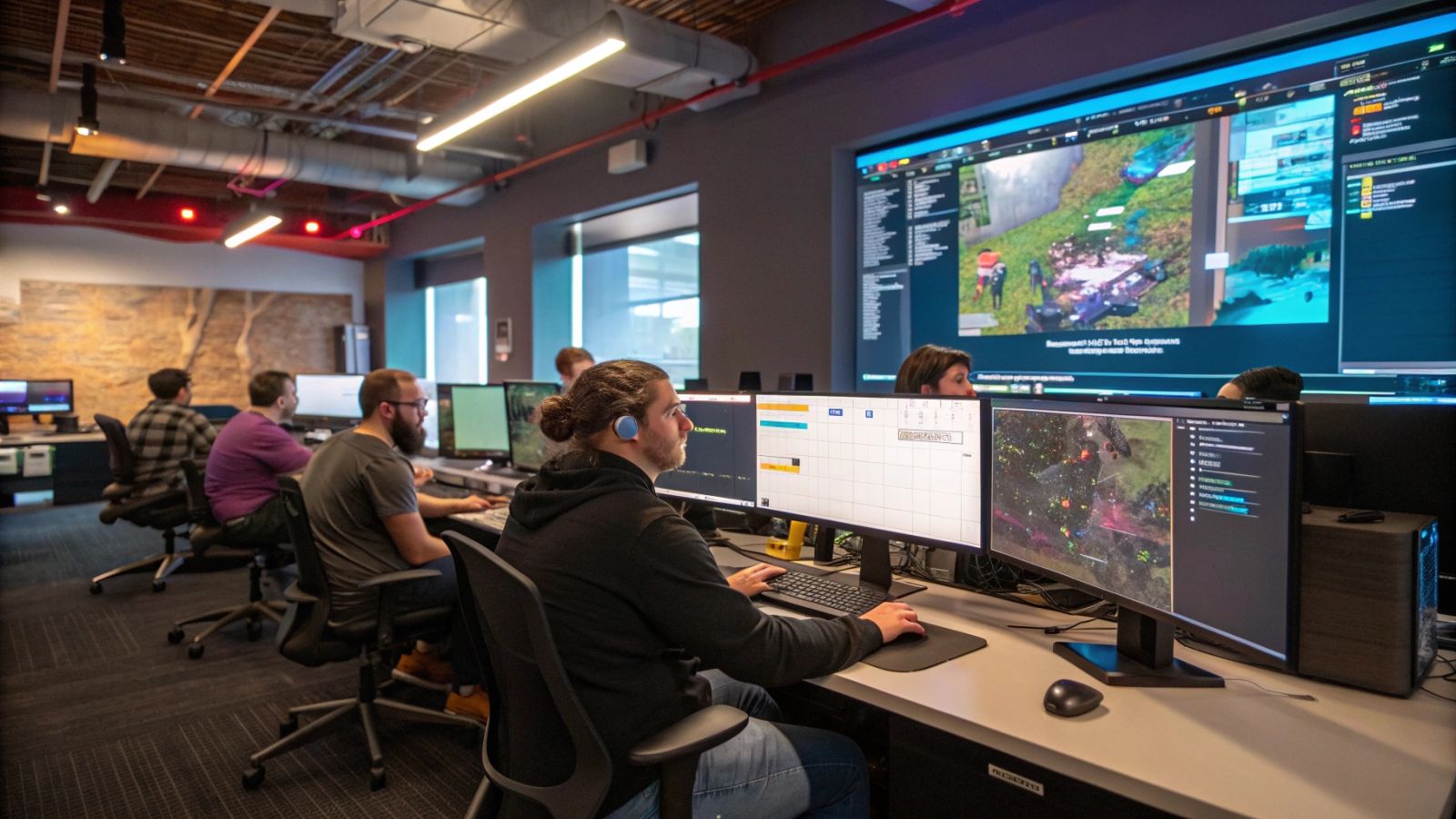Introduction
AI agents for game development are already reshaping production: 87% of developers use agents to cut dev time, impacting assets, dialogue and testing. This article explains why integrating agents matters, the legal and measurement challenges, and practical steps to capture value.
Context
A Google Cloud–Harris Poll across several countries found widespread agent adoption for automating repetitive tasks and producing content on demand. Use cases include code cleanup, voice generation, asset tagging and automated scripting or media processing, with roughly 44% using agents for content generation or processing.
AI agents for game development: what changes
Agents automate repetitive, time-consuming work and free creative teams. Observed benefits:
- Faster completion of repetitive tasks
- On-demand production of assets and dialogue
- Automated testing and quality checks
The problem / challenge
Despite potential, operational and legal issues arise: 94% expect long-term cost reductions, yet 25% struggle to track ROI and 63% worry about IP for agent-generated content. Recent industry layoffs and labor actions make job-security concerns tangible.
Solution / practical approach
To leverage AI agents while containing operational and legal risks, apply these practices:
- Design metrics: measure throughput, time saved and output quality to compute ROI
- Ensure accountability: log agent actions, require human review gates, and enable rollbacks
- Legal hygiene: adopt IP policies, contract clauses for suppliers, and source transparency
- Modular integration: plug agents into existing pipelines via APIs and checkpoints
Operational checklist
- Define agent KPIs (e.g., task time, rejection rate)
- Run agents in isolated test environments first
- Enforce human QA on critical outputs
- Formalize IP policies and decision logs
Conclusion
Game developers are writing the first chapter of agent-native workflows: agents bring automation and speed but demand measurement, governance and legal clarity. Treat agents as measurable pipeline components to secure lasting time and cost benefits.
FAQ
Frequently asked about AI agents for game development
- How do I measure ROI of AI agents for game development? Define operational KPIs (hours saved, asset throughput, rework rate) and compare integration costs to sprint-level savings.
- What legal risks come with AI agents in game production? Key risks include IP ownership of generated assets, use of datasets with incompatible licenses, and liability for automated content.
- How to integrate AI agents into creative pipelines without disrupting delivery? Start with pilots on non-critical tasks, add human review gates, and scale only once metrics show consistent improvement.
- Will AI agents replace creative roles in game development? Agents automate repetitive tasks; creative roles remain essential for oversight, quality control and artistic direction.
